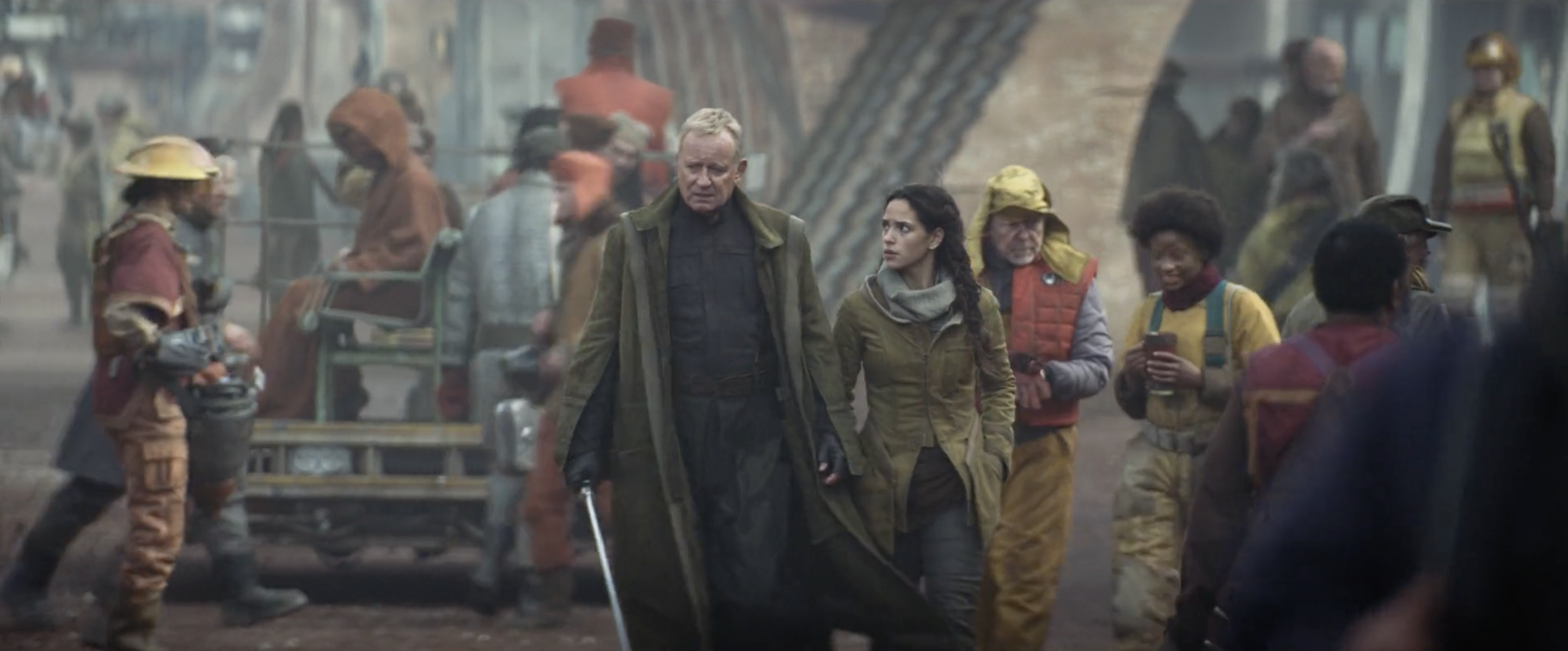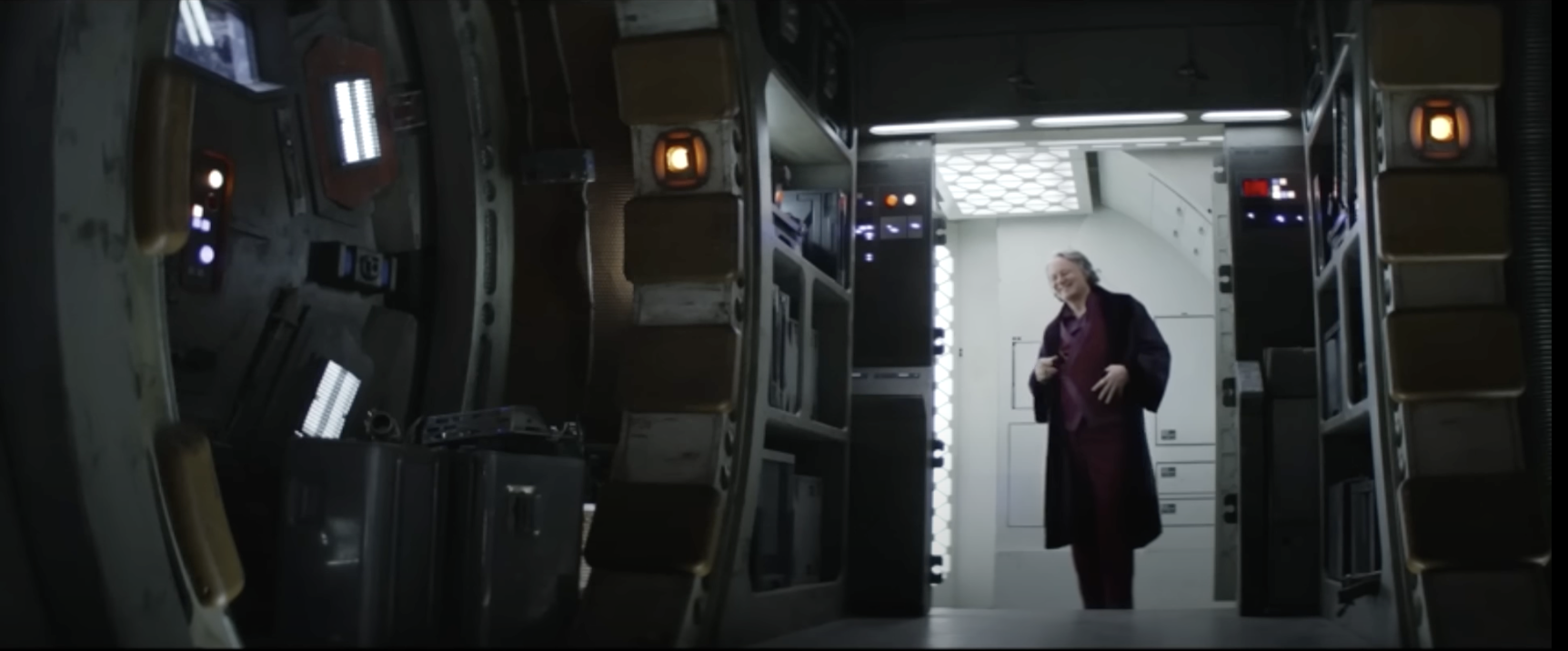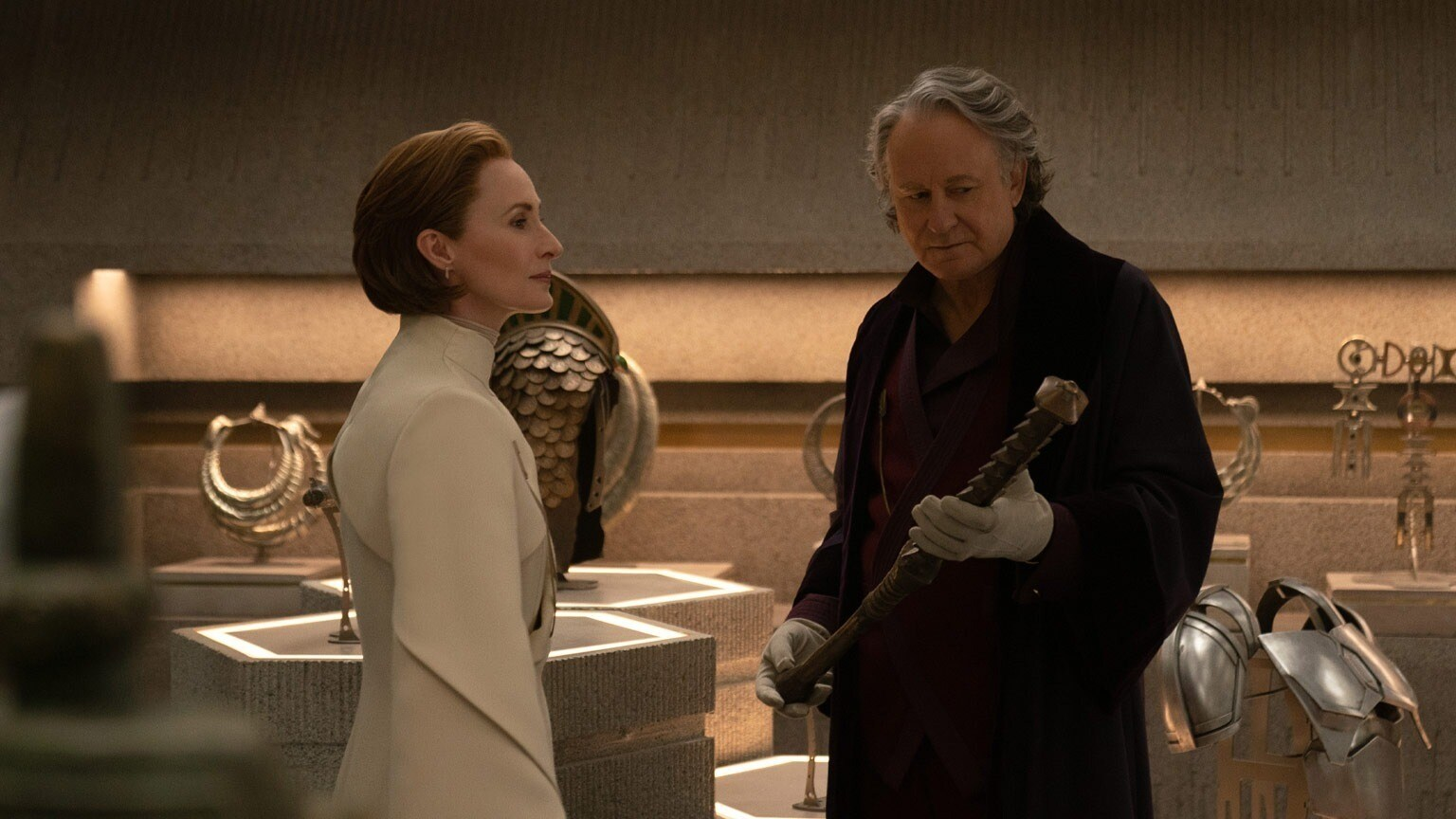the best character in star wars
Mar 05 2024
media, television
Like most things in Andor - Luthen Rael is more fully-formed than anyone we've seen yet.
I’ve got a video coming out in the coming days (or weeks, depending on how much spite God has for me) about Star Wars: Andor. Without saying too much about the video’s concept, I can definitively say the following: the show is great, and you should watch it. The show is so great, in fact, that it could provide enough compelling subject matter for well over a dozen of these written pieces. I’ve mercifully decided to only use it for one.
The part of the show I want to zero-in on today is one of the original characters it introduces in the first arc: Luthen Rael, portrayed by the brilliant Stellan Skarsgård. He’s introduced to us as a mysterious customer in the market for illicit goods, but it very quickly becomes clear that he’s purchasing said goods for the nascent Rebellion. Like most characters in Andor, his first appearance teaches us a great deal without saying much explicit. Luthen carries himself with a confidence that we haven’t seen from anyone else at this point. He appears to be the only character in the in the show thus far who has total command of the situation, who has prepared for every outcome, and most importantly, who has a clear idea of what they’re fighting for.
 A scene from episode three. Luthen has arrived on planet Ferrix in search of the show’s protagonist, Cassian Andor.
A scene from episode three. Luthen has arrived on planet Ferrix in search of the show’s protagonist, Cassian Andor.
There is certainly a darkness that Skarsgård brings to Luthen in these first few scenes that implies a larger story, but for the most part, you get the impression that this is a man who never falters - an impression validated by his near flawless tactical victory over an entire squadron of security officers while rescuing titular character Cassian Andor in episode three. Far from that being the end of his projection of power and control, once Cassian and Luthen are alone on their escape vehicle, Rael reveals that he’s knows about Cassian’s entire personal, criminal, and political history. He even waits to reveal that he has this knowledge until he’s baited Cassian into lying about it - just another way that he’s establishes his authority.
This unparalleled projection of strength continues through the show’s fourth episode, until one fateful moment arrives towards the episode’s midpoint. For the first time, we see Luthen in a way we haven’t ever seen him: alone. We see him getting out of his rugged combat clothes and into a sophisticated, violet robe. He puts on a wig. And, most notably, he seemingly begins to rehearse some kind of performance.
 A scene from episode four. Luthen is getting dressed in preparation for his arrival on Coruscant.
A scene from episode four. Luthen is getting dressed in preparation for his arrival on Coruscant.
The framing of the shot is excellent. Luthen’s ship is generally dark and dingy, but his dressing room is pristine, glistening with the brutalist chrome aesthetics that characterize Andor’s depictions of the Empire. Even before we have context for what Luthen is doing here, we are struck by a profound feeling of despair. It seems like he is being forced to do something demonic, to participate in a performance that is totally against his nature. Nicholas Britell’s stellar soundtrack drives this home: for his debut appearance, we heard the determined war march “Luthen Rael.” Now, being forced to debase himself with this disguise, we hear an anguished, haunting version of the same motif as “Luthen of Coruscant.”
It turns out that Luthen of Coruscant, in sharp contrast to Luthen Rael, is an antiques dealer for the upper echelons of the Empire’s elite. His shop is full of dozens upon dozens of ancient artifacts from Star Wars past, but in classic Andor fashion, these artifacts are not here for crude fan service. Instead, they underscore the show’s commitment to exploring the realities of imperialism. Many of the artifacts - the Mandalorian armor, the Jedi Temple Guard’s mask, and the Wookie helmet, just to name a few - are from peoples and species that the Empire has either already committed genocide against or is actively in the process of colonizing.
 A scene from episode four. Mon Mothma (left) and Luthen (right) covertly discuss the Rebellion’s shaky financial situation. The Mandalorian armor can be seen in the bottom right.
A scene from episode four. Mon Mothma (left) and Luthen (right) covertly discuss the Rebellion’s shaky financial situation. The Mandalorian armor can be seen in the bottom right.
Though the antiques shop is quickly revealed to be a rebel front, the show does not hide from the ghoulish reality of Luthen’s “legitimate” trade - a trade not dissimilar to the real-life conduct of imperial museums. Later in the show, a legitimate client inquires about the origin of one of the artifacts, and it prompts the following exchange.
Luthen: There’s an inscription on that one. In a language no one remembers.
Client: How sad.
Luthen: No, it’s liberating! You decide what it says. Your own secret language.
It’s a truly disgusting interaction - but, notably, it’s not remotely the most disgusting thing Luthen does (or threatens to do) in the show.
Andor is a show obsessed with masks. Almost every major character is constantly trying to balance the various roles they must play in different contexts, and the show focuses on the unimaginably violent effect that balancing act has on their self-image. Of all the characters in the show, Luthen is the one who would have the harshest consequences for his mask slipping, and not coincidentally he’s also the character who we get to see struggle to keep it on the most.
Luthen’s “true” backstory is not revealed, at least not the show’s first season. In spite of this, the show makes abundantly clear that there is not a single other character in the show who hates the Empire more than him. He genuinely has sacrificed everything in service of the Rebellion (which, at this point, is basically just him the network that he built) and the most vicious of those sacrifices is his pride. It would be one thing if he only had to deal with the responsibilities of being a revolutionary terrorist waging a guerrilla war against fascism. It’s quite another to deal with those responsibilities and then have to perform for those same fascists - placate their anxieties, enable their cultural imperialism, and bolster their self-image.
But why, you might ask, does this make him the best character in Star Wars? The answer is because this balancing act gives him interiority.
The character writing in Andor is generally orders of magnitude above most of the other Star Wars movies and shows. It’s certainly better than anything they’ve done since the Disney buyout. But even in this show full of well-rounded, fully realized characters, Luthen stands out. He stands out because the show drives home the gargantuan spiritual weight of living this double life, and because we see him buckle under that weight. But in spite of that, he doesn’t break.
Throughout the show, every character on the Rebel side is demanding his attention, guidance, or support for their own personal crises. Often they are denied, and they sometimes resent him for it. But Luthen does not dismiss or diminish their resentment. He owns the consequence every crime he commits in service of the Rebellion. As we learn late in the Season, he keeps a detailed accounting of every life he sacrifices for the greater good. He knows that he will be remembered for the consequences of his crimes, and not the Rebellion those crimes helped launch. And he’s accepted that reality.
It is hard to overstate how different this is from the depiction of the Rebellion in other Star Wars shows. Even in the original trilogy, there is often a sanitization of the hard edges that are usually involved in the real-world revolutionary events that the Rebellion draws inspiration from. But Andor, a project uniquely positioned to show us what revolution takes when you don’t have space wizards on your team, has created a character who can put a human face on revolutionary sacrifice. That’s worth celebrating - especially in a franchise that often struggles to put human faces on humans.

